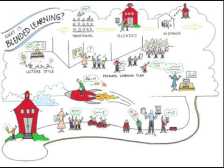
Edna Kaptoyo and Priscilla Achakpa discuss the importance of African women’s voices at COP21. See full video here.
In the video above, Priscilla Achakpa of Nigeria and Edna Kaptoyo of Kenya discuss the importance of African women’s involvement in the Paris Climate Change Conference given the disproportionate effect that climate change has on women in developing countries. Achakpa and Kaptoyo explain that in rural communities, women are the main source of labor in a family. This means that the woman is responsible for collecting water and firewood for the household, along with completing other agricultural and household tasks. When lakes dry up as a result of climate change, it is women who are expected to walk to the extra distance to the next available water source. This can prove to be a dangerous and grueling task.




